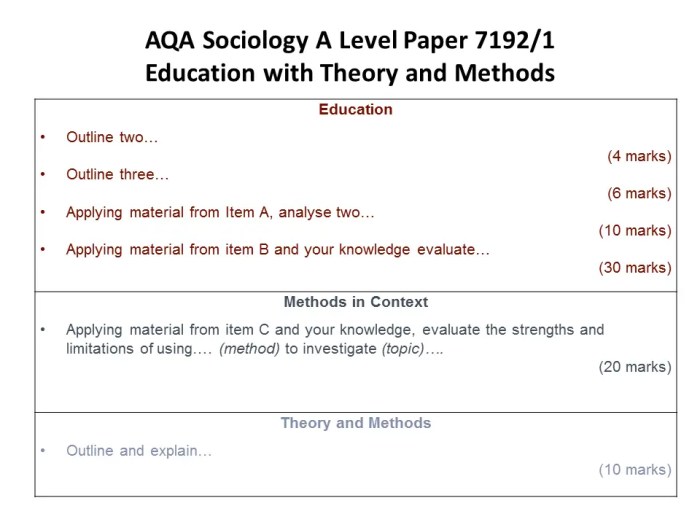Welcome to Introduction to Sociology Exam 1, an exciting journey into the captivating world of sociology. This comprehensive exam encompasses a broad range of topics, from the fundamental concepts of sociology to the intricate complexities of social institutions and social change.
As we delve into this subject, you will gain a profound understanding of the forces that shape human behavior, society, and the world we live in.
Sociology, as a social science, provides a unique lens through which we can examine the intricate tapestry of human interactions and social structures. By exploring the major sociological theories, research methods, and social institutions, you will develop a critical understanding of the social world and your place within it.
1. Defining Sociology: Introduction To Sociology Exam 1

Sociology is a social science that studies human behavior and society. It examines the social patterns, structures, and processes that shape our lives.
Sociological perspectives include:
- Structural functionalism:Focuses on the functions of social institutions and how they contribute to social order.
- Conflict theory:Emphasizes the role of power and conflict in shaping society.
- Symbolic interactionism:Examines how individuals interact with each other and create shared meanings.
Culture and society play a crucial role in shaping human behavior by providing norms, values, and beliefs that guide our actions.
2. Sociological Theories
Functionalism
- Key concepts: Social institutions, social functions, equilibrium.
- Assumptions: Society is a complex system of interconnected parts that work together to maintain stability.
- Strengths: Provides a comprehensive framework for understanding social order.
- Limitations: Can overlook conflict and inequality.
Conflict Theory
- Key concepts: Power, conflict, inequality.
- Assumptions: Society is characterized by conflict between different groups competing for resources.
- Strengths: Highlights the role of power and inequality in shaping society.
- Limitations: Can underestimate the importance of cooperation and consensus.
Symbolic Interactionism
- Key concepts: Symbols, meanings, social interaction.
- Assumptions: Human behavior is shaped by the meanings we attach to our interactions with others.
- Strengths: Provides insights into the subjective experiences of individuals.
- Limitations: Can be difficult to generalize findings across different contexts.
3. Research Methods in Sociology
Surveys
- Strengths: Collect data from a large number of respondents.
- Weaknesses: May not capture complex social interactions.
Interviews
- Strengths: Allow for in-depth exploration of individual experiences.
- Weaknesses: Time-consuming and may introduce bias.
Participant Observation, Introduction to sociology exam 1
- Strengths: Provides direct observation of social interactions.
- Weaknesses: Can be difficult to maintain objectivity.
Ethical considerations in sociological research include:
- Informed consent
- Confidentiality
- Avoiding harm
4. Social Institutions
- Family:Provides socialization, emotional support, and economic security.
- Education:Transmits knowledge, skills, and values.
- Religion:Provides spiritual guidance, community, and a sense of meaning.
Social institutions shape individuals and society by:
- Providing social roles and norms.
- Controlling behavior through rewards and punishments.
- Legitimizing social inequality.
5. Social Stratification
Social stratification refers to the division of society into different social classes based on their access to resources and power.
Forms of social stratification include:
- Caste systems:Closed social systems with fixed social positions.
- Class systems:Open social systems where individuals can move between classes.
- Race and ethnicity:Social categories that can lead to discrimination and inequality.
Social inequality has significant consequences for individuals and society, including:
- Health disparities
- Educational disparities
- Economic disparities
6. Social Change
Social change refers to the transformation of social structures, institutions, and cultural norms over time.
Types of social change include:
- Evolutionary change:Gradual, incremental changes over a long period.
- Revolutionary change:Rapid, fundamental changes that occur over a short period.
- Technological change:Innovations that have a significant impact on society.
Social change is driven by factors such as:
- Technological advancements
- Economic changes
- Political movements
- Cultural shifts
Social change has significant consequences for individuals and society, including:
- New opportunities and challenges
- Disruption of social norms
- Increased social inequality
FAQ
What is the purpose of sociological research?
Sociological research aims to understand and explain social phenomena through systematic and objective methods, providing valuable insights into the workings of society.
How does social stratification impact individuals and society?
Social stratification creates unequal opportunities and outcomes for individuals based on their social position, leading to disparities in access to resources, power, and well-being.
What are the key differences between functionalism, conflict theory, and symbolic interactionism?
Functionalism emphasizes the role of social structures in maintaining social order, conflict theory focuses on the struggle for power and resources, and symbolic interactionism examines how individuals create and interpret meaning through social interactions.